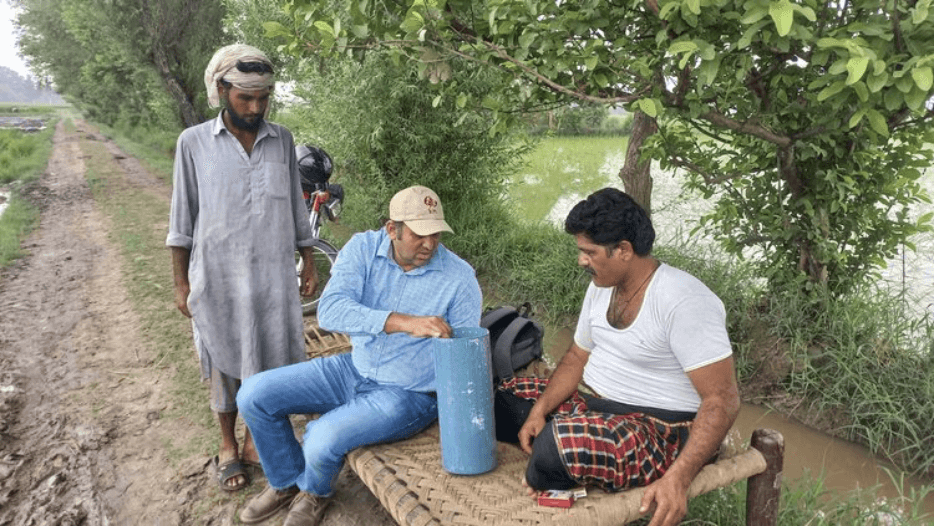Rice is the world’s most important staple food crop, helping feed over four billion people. However, the grain highlights the central paradox of food production: feeding the world’s growing population is also polluting our earth, making us more vulnerable to climate change.
The most productive rice farming currently requires the flooding of paddy fields, consuming vast quantities of water. It also creates a low oxygen environment, leading to soil microbes producing methane that escapes from the water into the atmosphere.Methane is a potent greenhouse gas (GHG), with a global warming potential 28 times greater than carbon dioxide. Over the past two years, scientists have observed record annual increases in atmospheric levels of methane(1). Rice cultivation is responsible for around 14% of those methane emissions, which is more than the GHG footprint of the entire aviation industry.There are simple steps we can take to reduce methane emissions from rice production. Nevertheless, most of the world’s rice is produced by around 140 million smallholders in Asia, who predominantly exist at subsistence level. This means that innovations to farming practices need to be low-cost, easy to implement and have a positive impact on yield.
Read More at https://www.goldstandard.org/news/reducing-emissions-one-grain-at-a-time


